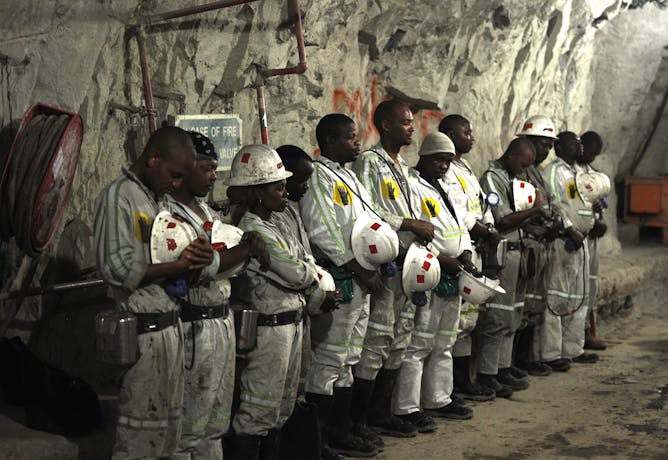|
The passing of Elizabeth II has brought with it polarised views – fondness for the British monarch but also resentment of colonial plundering that benefited the monarchy. Colonisation expanded the British practice of enclosing common land to benefit elites, writes Adam Haupt. He explains how the policy lives on today through the privatisation of common land – such as the historically significant Liesbeek River site in Cape Town where global retailer Amazon is
trying to build its South African headquarters.
The collapse of the wall of a mining dam in South Africa this past weekend, with tragic results, is a reminder of the need for clearer regulatory oversight and enforcement of the safety standards for these dams. South Africa has more than 200 dams that hold watery residues from the extraction of minerals. Charles MacRobert, who with his colleagues recently surveyed the skills and competencies of the people who manage these dams globally, says the country must
urgently align its dam management standards with global ones.
You might have noticed that late last week we closed the comment feature across The Conversation website. This was due to a worldwide attack which involved bots posting inappropriate material. We’re working to fix the problems and hope to have comments on selected articles open again very soon.
|

Adam Haupt, University of Cape Town
The British empire brought the practice of commons enclosure to Africa to claim land. Its effects continue today at sites like the Liesbeek River in Cape Town.
|

Charles MacRobert, Stellenbosch University
Confusion over which government department should regulate the tailings dams may explain the Jagersfontein tragedy.
|
|
|
-
Jules Siedenburg, University of East Anglia
The research reviewed the available evidence on microalgae as food supplements, livestock feeds, biofertilisers, biostimulants and biochar feedstocks.
-
Rachel Beatty Riedl, Cornell University; Bamba Ndiaye, Emory University; Oumar Ba, Cornell University
The 2024 presidential election is shaping up to give Senegalese a significant and competitive election, leaving voters in the driver’s seat.
-
Mara Leichtman, Michigan State University
A variety of cultural performances evoking intense emotions occur during the Islamic month of Muharram. A scholar observed the processions on Ashoura in northern Tanzania.
|
|

Jonathan Levy, Boston University
Natural gas has been marketed for decades as a clean fuel, but a growing body of research shows that gas stoves can contribute significantly to indoor air pollution, as well as climate change.
|
|
|
-
Frank Ledwidge, University of Portsmouth
The success of Ukraine’s recent offensives have shown Ukraine can defeat Russia militarily, as long as it has sufficient support form the west.
-
Kirstine Lund Christiansen, University of Copenhagen; Inge-Merete Hougaard, Lund University
The Danish capital reneged on its net zero target after an incinerator failed to secure state aid.
|
|